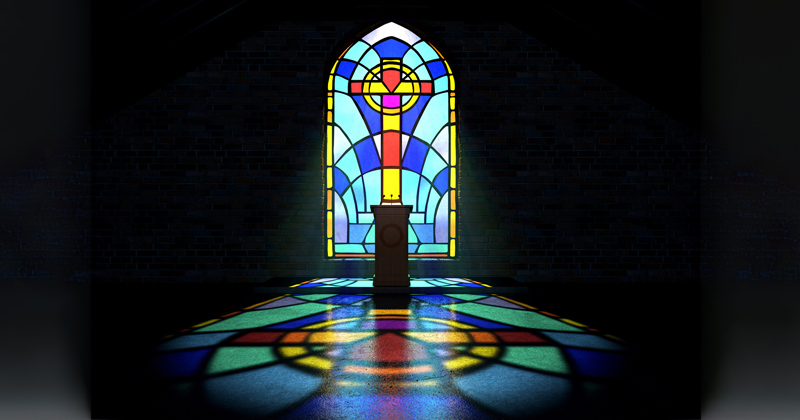Governors of Catholic schools who oppose plans to join new mega MATs have been told by their diocese in South Yorkshire they “should resign”, a Schools Week investigation has found.
Meanwhile, another diocese in the west of England told its governors they could only pass compliance checks if they provided evidence they supported academisation.
Failing such a check meant the school would be barred from an ‘outstanding’ rating in Catholic inspections.
Leaders said the moves showed governors’ faithfulness was being leaned on to force through decisions they might not agree with.
It also comes after the leaders’ union NAHT revealed members in a London archdiocese were left fearing “negative repercussions” for resisting a bishop’s academy vision.
In the west of England, Clifton Diocese wants to begin the “next phase” of its bishop’s vision for Catholic trusts to join three mega MATs. These would provide “growth in size and capacity”.
Inspections check on compliance with ‘directives’
But information “regarding the bishop’s vision is not reaching all stakeholders effectively”, Mary Cox, the diocese’s director of schools and colleges, said in a letter this month.
Compliance checks on “whether schools are supportive of the bishop’s directives” have been introduced to Catholic school inspections.
“Since the bishop’s vision is part of these directives, each governing body of schools not yet in a trust, should include an acknowledgement of the new plan, as well as their intention to support it,” she wrote.
“I can then record your school as compliant in accordance with the Catholic Schools Inspectorate (CSI) framework.”
Guidance shows that schools not compliant in this area could not be rated ‘outstanding’.
‘Growing pressure’
A leader in the area, who asked not to be named, said the “strong link made between faithfulness and joining a diocesan MAT is placing real strain on governors”.
The “growing pressure” was also “drawing headteachers into complex governance debates, often at the expense of the urgent day-to-day work of leading schools”.
A Clifton spokesperson said the letter “was written in the spirit of encouraging ongoing discernment”. Inspection grades “depend on many aspects of school life, and no single factor determines the outcome”, they added.
When asked for comment on the case, a CSI spokesperson said “all judgments are ultimately made by the inspector”, with some determining “whether or not a school is following the bishop’s vision for the diocese”.
This would “vary from diocese to diocese”, but “decisions will be based in part on [inspectors’] own individual judgment as well as information provided by both the school and the diocese”.
Bishop’s vision ‘may not align’ with governors
Meanwhile, a document shared by Hallam Diocese in South Yorkshire with leaders last month noted the educational strategy defined by the bishop might “not align” with the vision of governors.
But it said “for the avoidance of doubt” that “it is not for the governing body to decide when they may or may not join their designated” MAT. Not doing this, placed the bishop “in an invidious position”.
“Here the position of a foundation governor is clear. If they cannot accept where the authority lies for setting the conversion timeline for their school, reluctantly they should resign their position,” the document read.
“It is imperative to reiterate that it is highly inappropriate and disrespectful for any foundation governor not to accept this position and continue in their role to prevent the implementation of the bishop’s educational strategy.”
Most governors in Catholic schools – called foundation governors – are appointed by the bishop. They are also charged with preserving the school’s religious character.
‘Met with hostility’
Earlier this month, the Archdiocese of Southwark in London was accused of subjecting leaders to “inappropriate pressure” and threatening to force out obstructive governors in its bid for “universal academisation”.
In a letter, seen by Schools Week, the NAHT revealed members in the archdiocese said they had been “met with hostility” and feared “negative repercussions” for questioning the conversion plans.

They also claimed the body representing bishops’ national education policy, the Catholic Education Service (CES), hinted that those fighting proposals to join one of five religious multi-academy trusts could be downgraded during Catholic inspections.
A CES spokesperson said there was “nothing within the inspection process requiring academisation”. But a school was an “integral element of the wider vision for a diocese… with school leadership embracing this approach being recommended as part of any inspection”.
Schools Week revealed in December that all but one of the 19 English Catholic dioceses were pursuing trust growth, with one planning to split almost 200 schools between three super-sized trusts.
Loic Menzies, a policy expert, believes the cases show some schools are continuing to be pushed into trusts, despite it being thought recent Labour announcements had initiated “a swing away from academisation”.















In these cases, the foundation governors and staff in some schools have genuine concerns on the impacts the forced strategy will have on the entire community involved in their school. To continue to push and favour the wants of the bishops memorandum over the concerns of impacts it will have on the children and families, it’s not promoting positive outcome is it. To threaten loss of role security if failure to comply rings alarm bells of deafening volumes!
Community discussions should have been sought prior to pushing strategy. Having full discussion and open transparency involving parents, families and the wider community would have been best practice and would have brought support for the movement. The constant safeguarding of data and internal governance given higher priority to the vulnerable people it impacts. more transparency = more trust.